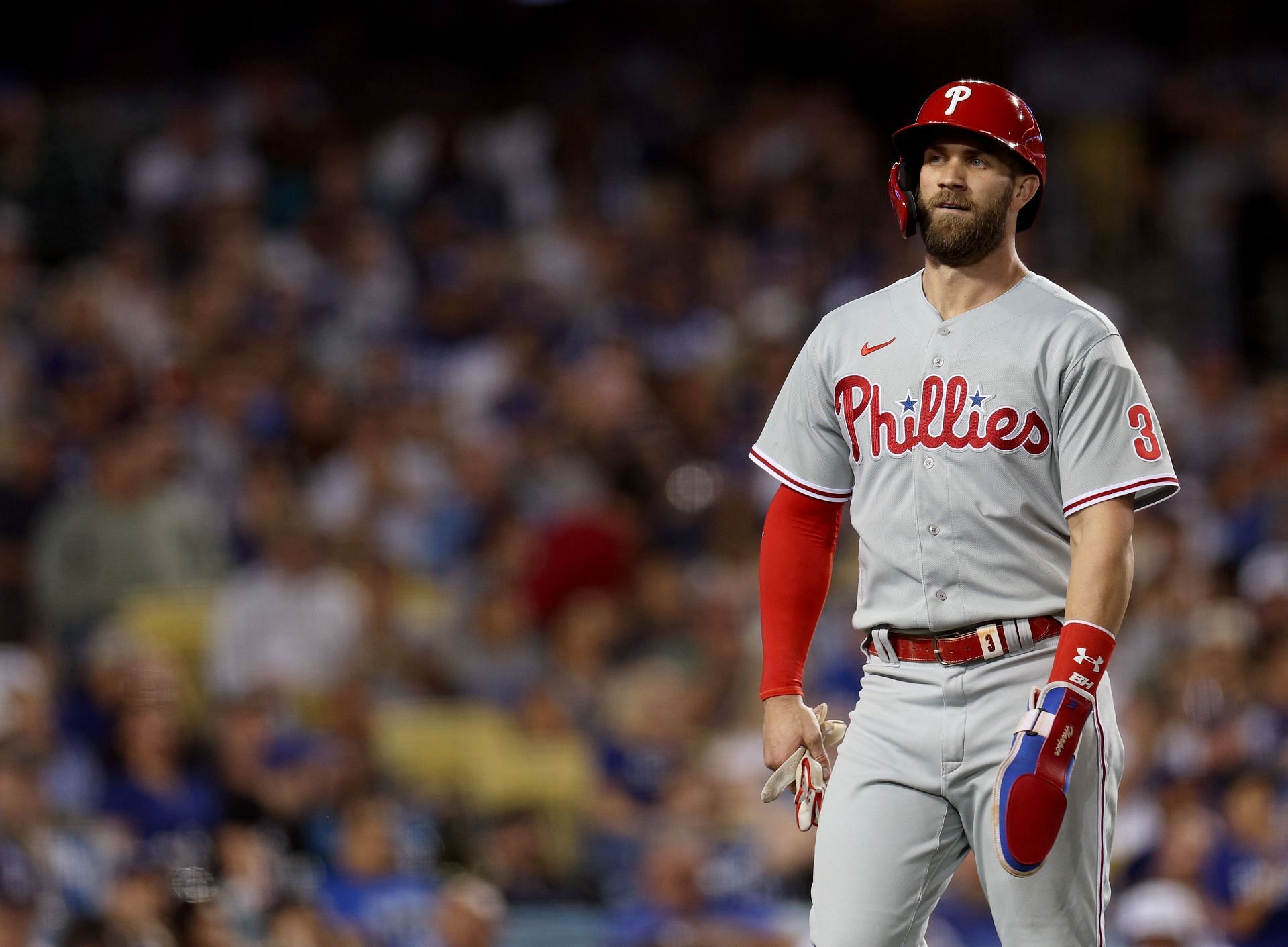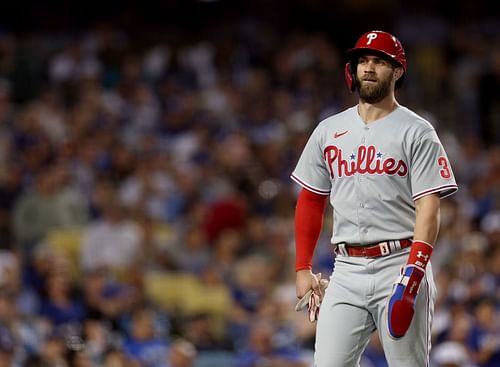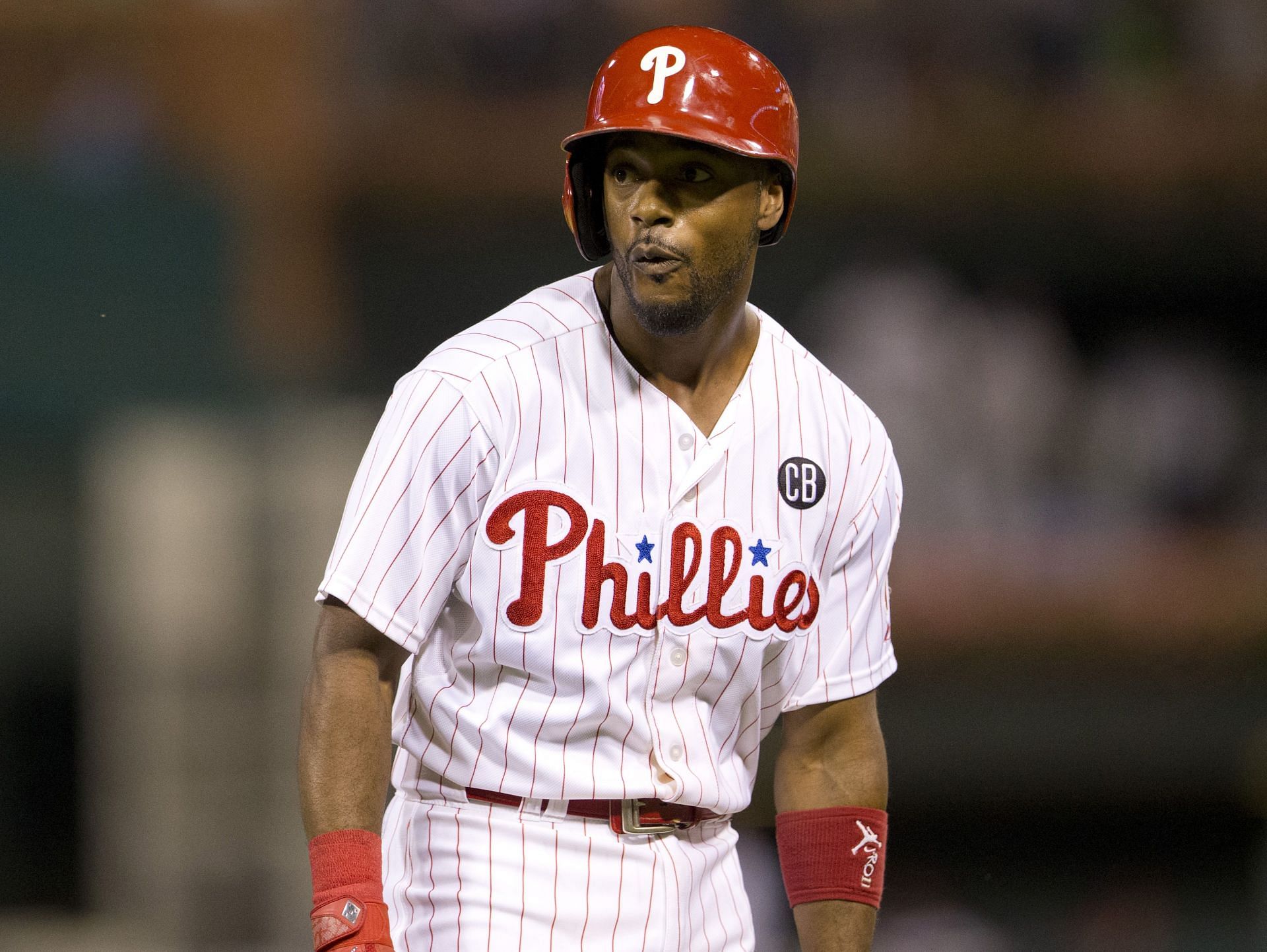
“Harp, you can’t do it this way. Most DHs that I’ve been around, they get lost and go do stuff” - Philadelphia Phillies superstar Bryce Harper had no clue how to be a designated hitter until a retired legend gave him some advice

Everyone knows that the Philadelphia Philles slugger Bryce Harper can crush baseballs on a regular basis. He won the National League's Most Valuable Player Award last season after batting .309 with a .615 slugging percentage over almost 600 plate appearances. His on-base plus slugging percentage was a league-best 1.044, as was his OPS+ of 181. To top it off, he balanced his easy contact with power and hit 35 home runs.
"I had to be part of the team in a different way. I couldn’t really wrap my head around that, not being able to be out there.” Amazing look from Ken, deep inside Bryce Harper's mental battle with learning how to DH." - @ Jayson Stark
But Bryce Harper achieved those feats as an outfielder — not as a designated hitter. When the MLB introduced the universal designated hitter rule, teams in the National League began slotting players into the position who had never done it before. It seems easy enough: It's just hitting without fielding.
Bryce Harper quickly found out that being a designated hitter is much more complicated than that.
Philadelphia Phillies superstar Bryce Harper had no clue how to be a designated hitter until a retired legend gave him some advice

It was the evening of May 5, and a somber Philadelphia Phillies team walked around their home clubhouse at Citizens Bank Park. They had lost three games straight and were about to play their worst game of the year, one in which they would blow a seven-run lead in the ninth inning to the New York Mets. They were going to lose 7-8 that night and nobody knew it yet. Still, it wasn't a happy clubhouse, and nobody was feeling less happy than the team's best player, Bryce Harper.
Harper was dealing with an elbow injury that prevented him from throwing and playing his usual left field position. He had been slotted into the designated hitter's spot and was having trouble adjusting. At that time, Harper was batting just .232 with a .745 OPS. Those were low numbers for the reigning MVP.
"When Bryce Harper was struggling to adjust as a DH, Phillies great Jimmy Rollins gave some advice. 'It’s OK if you’re hurt.' 'It’s OK to make outs.' 'Find a distraction.' 'He just needed to be reminded how good he was,' Rollins told @Ken_Rosenthal" - @ The Athletic
Phillies hitting coach Kevin Long explained that Harper's struggles came from the new and strange routine.
“He struggled at first really, really bad, just getting into his rhythm, his routine, what he was doing,” said Long.
Jimmy Rollins, a 43-year-old retired MLB shortstop who used to play for the Phillies, was in the clubhouse before the game. He listened to Harper talk about his hitting woes and dislike for being a designated hitter. He complained about his injured elbow, but Rollins told him to focus on his mindset.
“'I wasn’t trying to give him advice. I just wanted to hear where he was," Rollins said. "At that moment, the biggest thing for him was that he was struggling. But it wasn’t a physical thing. It was mental.”
Rollins gave Harper a word of encouragement that the superstar would take to heart:
"It's OK if you're hurt," Rollins told Harper. "No one is saying anything about you in here. You’ve already got their respect. You're good. They know. It's okay to make outs."
Harper's main struggles as a designated hitter came from not being able to contribute to his team defensively. On games that he went 0-for-4, Harper felt he was nothing more than a detriment to his team. He felt he wasn't recording outs to balance the ones he was making. Rollins told him to stop thinking that way.
“It’s not like because you’re DHing, you’re automatically going to bat 1.000," said Rollins. "That just doesn’t happen.
“Find a distraction,” he advised Harper.
Rollins told Harper about the legendary Boston Red Sox designated hitter David Ortiz. Even though Ortiz rarely played a defensive position, he was excellent at the plate throughout his career. Rollins said he managed that by constantly distracting himself.
“What made David so good, he’d go up there, hit a home run, go into the locker room, get on Instagram while he’s watching the game, maybe call his homeboys,” Rollins said. “He’s paying attention, but he has a distraction. Even though he’s locked in, he understands he couldn’t be involved in every single element of the game."
Bryce Harper took the words to heart. He built his own routine with his own unique distractions. Between at-bats, he would leave the dugout sometimes and go back into the clubhouse. Often, he would entertain himself by hitting baseballs in the batting cage. The key, however, was to stop thinking about which at-bats mattered and which did not. Once he relaxed into a routine, Harper started looking his old self.
This season, Bryce Harper is hitting .143 with only one home run and a .663 on-base plus slugging percentage in 36 plate appearances as a right fielder. As a designated hitter, he's batting .336 with nine home runs and a 1.010 OPS in 162 plate appearances. It's safe to say he's settled into his new role.